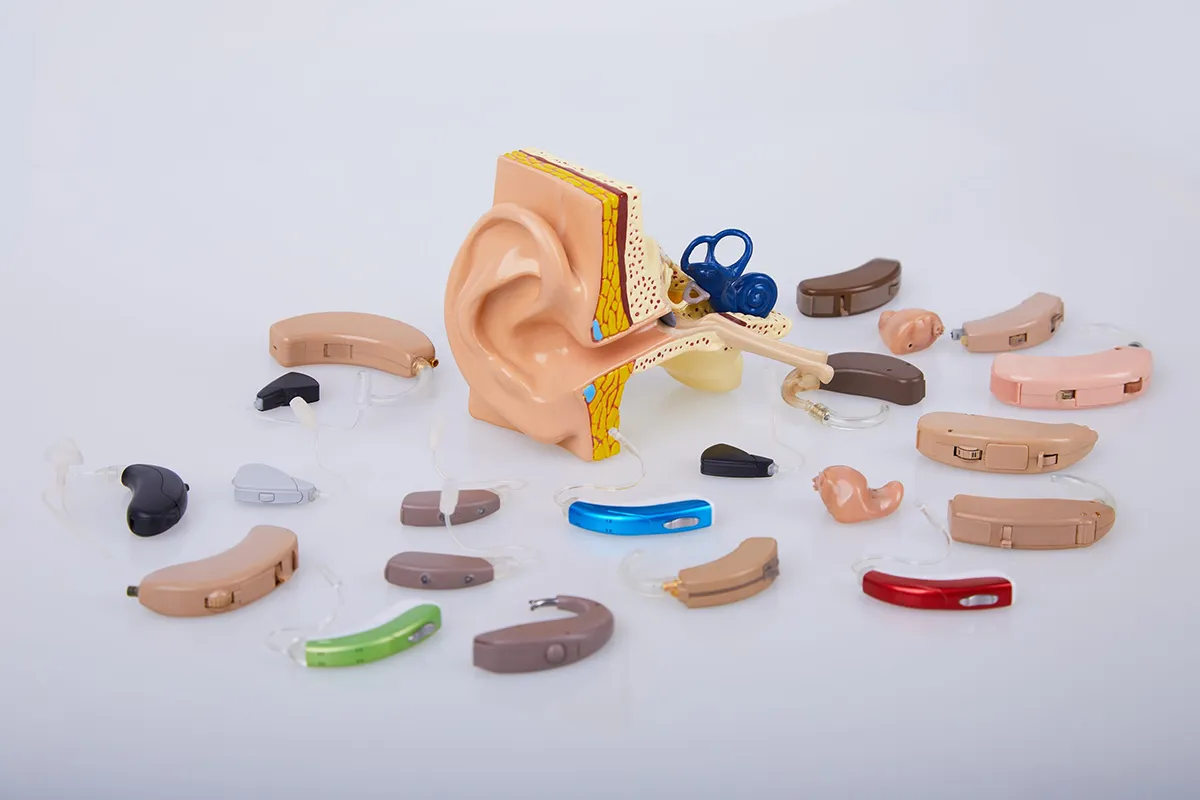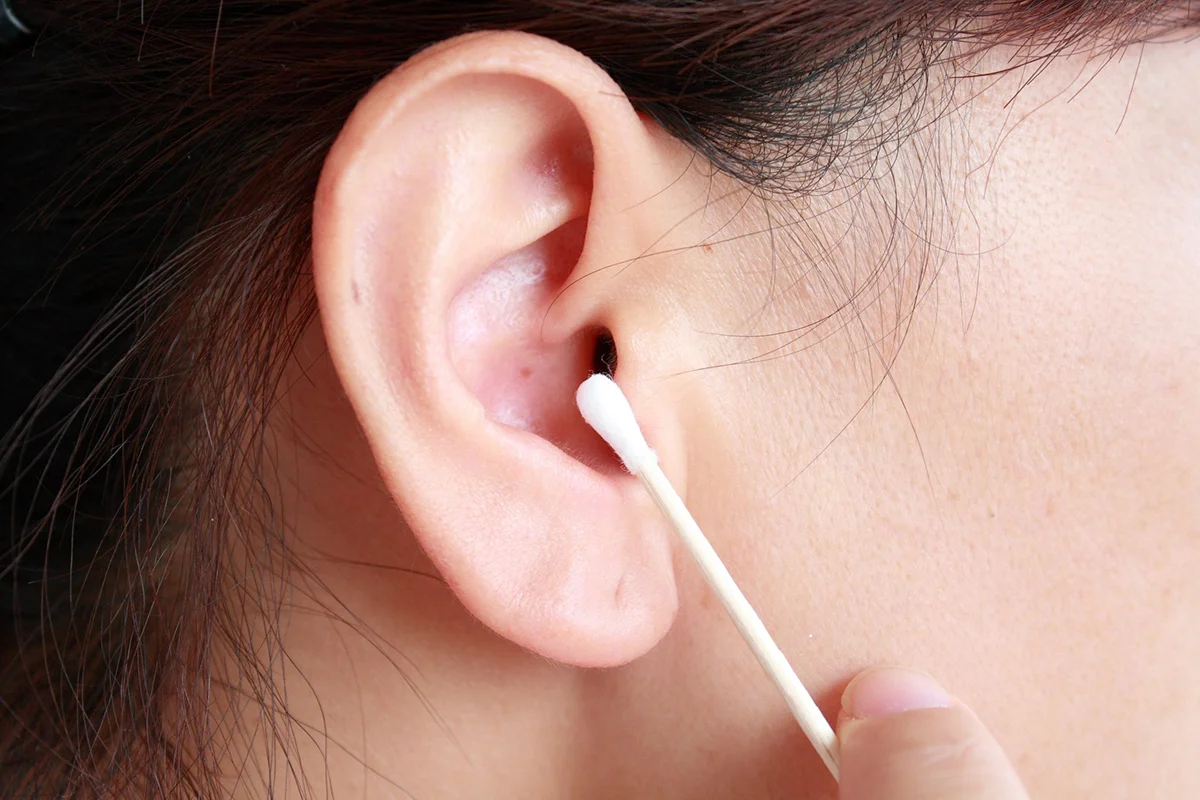Tinnitus, a term of Latin origin meaning "to ring or tinkle,” is a condition that affects approximately 10 percent of the U.S. population and hundreds of millions of people worldwide. Commonly described as ringing in the ears, tinnitus can disrupt daily life and lead to distress.
Tinnitus sometimes signals an underlying health issue, and can also lead to substantial challenges with memory, concentration, anxiety, depression, and fatigue.
There isn’t a cure (yet), but there are treatment options, including hearing aids, that can help.
What Is Tinnitus?
Tinnitus is a condition that can be described as the perception of sound without an external source present in the environment. It is typically a ringing in the ears but can also be buzzing, hissing, roaring, clicking, humming, or other similar noises that seem to originate from within one’s own head or ears. The noise can be faint or loud, heard in one or both ears, and the pitch can be high or low. Tinnitus can also be continuous and present at all times, or it can come and go.
Tinnitus isn’t a disease; it’s a symptom of a medical condition. While the exact causes are not fully understood, some of the presumed common causes are noise exposure, age-related hearing loss, ear wax or an ear infection, head or neck injuries, and certain medications, including non-steroidal anti-inflammatory drugs, like ibuprofen and aspirin, certain anti-cancer drugs, and certain antidepressants.
Tinnitus is fairly common, affecting anywhere from 10 to 25% of adults, according to the National Institute on Deafness and Other Communication Diseases (NIH). While some people are able to live with it comfortably, for others, it can be the cause of anger, frustration, and depression. Unfortunately, there is not a cure for tinnitus, but it can go away when the underlying condition is determined and treated. If not, there are ways to reduce its impact.
Tinnitus Treatments
Since tinnitus is a condition with various underlying causes, there is no one-size-fits-all treatment. Treatment approaches usually focus on managing the symptoms and improving the individual's quality of life. This can be done in several ways, including:
Sound Therapy
There are several types of sound therapy that can provide tinnitus relief. For mild cases of tinnitus, using a sound machine (either a specialized device or a smartphone app) that generates soothing sounds can help with relaxation and sleep.
Wearable Sound Generators
Wearable sound generators are small electronic devices, much like a hearing aid, that fit in the ear and produce a white noise that helps mask tinnitus and offers continuous relief throughout the day.
Behavioral Therapy
Counseling or cognitive behavioral therapy can help people experiencing tinnitus by providing coping techniques and strategies, as well as stress management, so that they are less bothered by the tinnitus or not bothered at all. Tinnitus Retraining Therapy (TRT) is another approach that combines counseling and sound therapy to help individuals habituate to the tinnitus sound and reduce their emotional response to it.
As with any medical concern, consulting a healthcare professional is the first step in determining the most suitable treatment plan for your situation.

Can Hearing Aids Help Tinnitus?
Wearing hearing aids helps a lot of people experience relief from tinnitus, but unfortunately, they don’t work for everyone. For individuals grappling with both hearing loss and tinnitus, hearing aids are a great option. That’s because they do more than just improve overall hearing. They also help remove the focus from the ringing or buzzing sounds inside the ears, making them less noticeable. By making external sounds clearer, hearing aids effectively make the internal tinnitus sounds less apparent and bothersome.
How To Find The Best Hearing Aid For Tinnitus
Ultimately, the best hearing aid for tinnitus depends on your personal needs and preferences. To find the best hearing aid for tinnitus for you, it’s a good idea to consult with a professional. They can help you understand the type and severity of your tinnitus and guide you toward options specifically designed to provide relief.
You’ll also want to consider the hearing aid features, comfort and fit, ease of use, budget considerations, the availability of customer support, and if the hearing aid provider offers a trial period.
Keep in mind that what works well for one person with tinnitus might not work as effectively for another. Working closely with a professional and being open about your needs and experiences will increase your chances of finding a hearing aid that offers meaningful relief from your tinnitus symptoms.
This content is made available for educational purposes only and to provide a general understanding of issues around hearing loss, hearing health, and the hearing aid industry. It is not medical advice and should not be treated as such. By using this website you understand that the information contained herein should not be used as a substitute for competent advice from a licensed health care professional in your state. Furthermore, you agree to absolve Eargo of any liability or loss that you or any other person may incur from use of the information you access through this website. Any testimonials used are from actual customers about results they personally achieved and are not intended to guarantee that current or future customers will achieve the same or similar results; rather, these testimonials represent what is possible. Although every effort has been made to ensure the accuracy of the information shared on or through this website, the information may inadvertently contain inaccuracies or typographical errors. Because scientific, technology, and business practices are constantly evolving, you agree that Eargo is not responsible for the views, opinions, or accuracy of facts referenced on or through this website, or for any errors or omissions that may occur.




